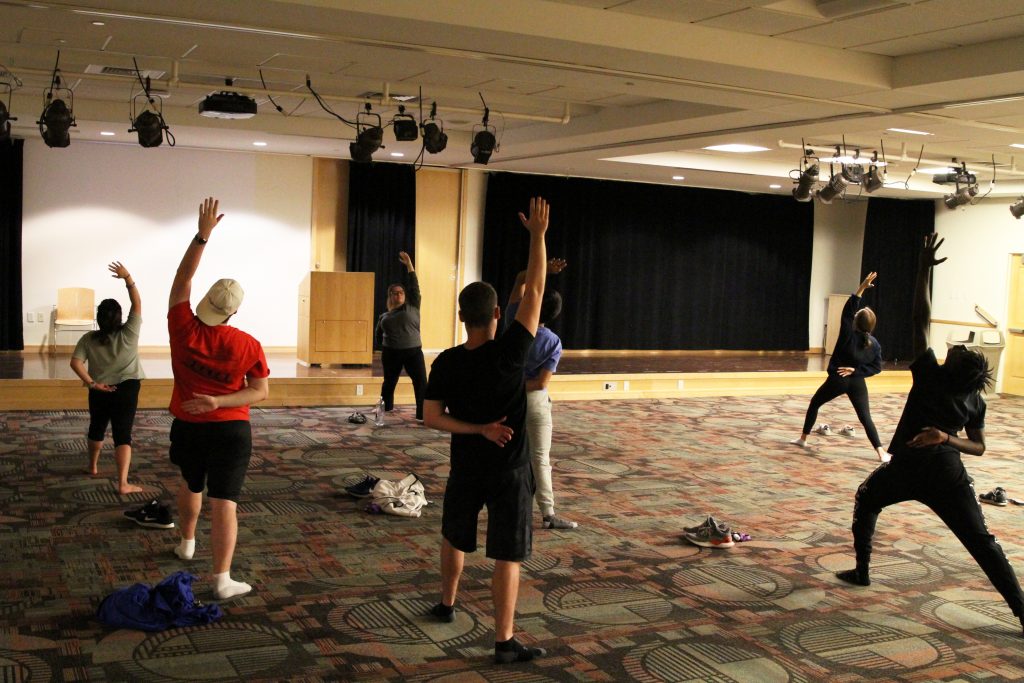
Mental Illness Awareness Week is wrapping up, but the discussion of mental health at Binghamton University continues.
The Dickinson Town Council hosted a Mental Health Awareness event on Thursday where students had the opportunity to learn about mental health and take part in activities like yoga. Earlier that day, Kristina Johnson, State University of New York (SUNY) chancellor, announced a system-wide Student Mental Health and Wellness Task Force will be formed with the goal of addressing mental health concerns on all 64 SUNY campuses. According to a SUNY press release, the task force will focus on early intervention to promote a better learning environment.
The event and changes come after years of criticism from BU students regarding mental health services on campus. Erin Herbstritt, a senior majoring in integrative neuroscience, said there are not enough mental health resources at BU, despite the efforts of the University Counseling Center (UCC).
“I personally have been going through a rough patch and the earliest appointment I could schedule with my counselor was over a month away,” Herbstritt said. “We need more and better resources, because this obviously isn’t cutting it.”
Herbstritt said she has been going to the UCC for two years. When she does get an appointment, her negative experiences have outnumbered the positive ones.
“The counselors don’t actually seem to care and aren’t actually helpful,” Herbstritt said. “It might feel good to go see someone, and for some people that does help, but almost everyone I spoke to has been completely disappointed with the counseling they received.”
The funding for the UCC comes from the Student Health Services fee, which is classified as a broad-based fee, and can only increase by a certain amount each year — a maximum of 3 percent across all all broad-based fees combined. The fee is split between the UCC and the Decker Student Health Services Center. Julia Gabalski, a senior majoring in integrative neuroscience, is a member of the Student Health Advisory Committee (SHAC), which aims to help disperse the money from the Student Health Services fee, and said money is one of the major obstacles to improving BU’s mental health services. Still, she said something needs to be done.
“The campus has serious issues in addressing the unique challenges of our students,” Gabalski said. “In my opinion, the campus has shown some ability to listen to the students and what they need, but they’re not creating the changes fast enough, especially with all of the student deaths across campus.”
John Santare, Student Association (SA) vice president for academic affairs and a senior double-majoring in biology and comparative literature, is also a member of the SHAC. He said students have voiced other concerns, including that the UCC lacks diversity to properly represent the student population.
“Binghamton University should hire more counselors of color and [LGBTQ] counselors,” Santare said. “If the team of counselors was more representative, then they would empathize with the student body, and situations like these [student complaints] would decrease in frequency.”
Santare said his office is planning to release a series of brochures by the end of the semester that will focus on mental health resources available for students. The goal is to highlight alternatives to the UCC, such as telecounseling, community masters of social work and Support Empathy Empowerment Kindness (SEEK), which was formerly known as the High Hopes Helpline.
To help alleviate the long appointment wait time, Santare said the University is looking into a few projects for the future, including leasing campus counseling space to off-campus providers when it is not being used by the UCC. He noted that the only noticeable downside of the leasing project is that students would have to use their own health insurance.
The SA will be hosting a roundtable discussion, “SA Let’s Talk: Mental Health Resources” at 5:30 p.m. on Nov. 4 in University Union Room 124, with the goal of giving students a forum to ask questions, voice their concerns and propose ideas about mental health resources.


